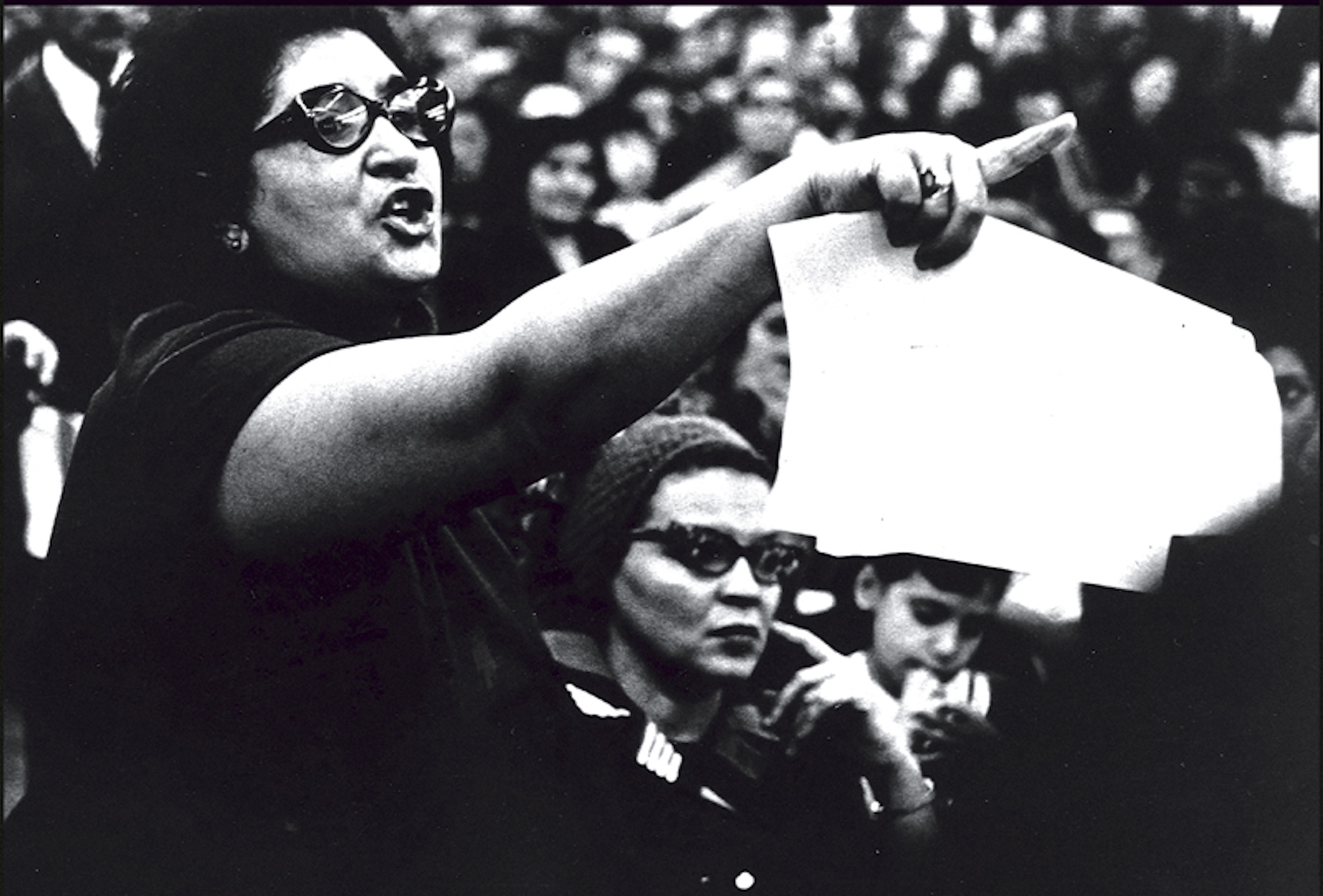
This Women’s History Month, we must recognize an important trailblazer within the Latino community. Dr. Evelina López Antonetty advocated for the rights of Puerto Ricans and African Americans amidst the Civil Rights Movement and the War on Poverty in the 1950s and 60s. Dubbed “The Hell Lady of the Bronx” by the New York Police Department, Antonetty was a human rights activist, community organizer, and educational leader well known for her outspoken nature and fearlessness in the face of authority. She was known more affectionately by her community as “The Mother of the Bronx” for her dedication to ensuring the community had adequate food, jobs, and equal educational opportunities.
Antonetty was born in 1922 in Salinas, Puerto Rico, and in 1933, she moved to the United States. Growing up in New York, she experienced firsthand the poor conditions that Puerto Rican and African American children faced within the educational system. The postwar era witnessed a significant influx of Puerto Rican migrants, a period that came to be known as the “Great Migration.” During this time, the “Puerto Rican Problem” narrative arose in New York City which portrayed Puerto Ricans as poor, unassimilable, and dangerous. Rather than recognizing the diversity of the Puerto Rican experience, city officials, including the Puerto Rican government, promoted assimilation as a means of mitigating the social, economic, and political struggles Puerto Ricans faced. Although Puerto Ricans in New York were faced with limited educational access and discrimination in schools since the 1920s and 30s, the postwar influx of migrants increased pressure on city authorities to recognize the inadequacies within the school system. Teachers were unprepared for the sudden increase in the number of Spanish-speaking children entering the city’s public schools. As a result, many Puerto Rican children were placed into lower-level classes than their English-speaking peers. At the secondary level, many children either withdrew from school or were placed into non-academic or vocational programs. This was a serious cause for concern amongst Puerto Rican community leaders as they recognized the need for serious educational reform.
In 1965, Antonetty founded the United Bronx Parents (UBP), a grassroots organization of Puerto Rican parents and activists that provided tools for parents to advocate for their children and inspire community reform for education. The UBP aimed to encourage community awareness and engagement in the development of educational policy and to inform school administrators of ways to accommodate the diverse needs of their students. Antonetty’s efforts led to the founding of the first fully bilingual school in the United States, which laid important groundwork for other bilingual programs across the country. Still active today, UBP continues to lead advocacy workshops for parents.
In 1980, she led the protest against the film Fort Apache, The Bronx for its negative portrayal of the Black and Latino communities. Despite attempts to boycott the movie, it still became a box office hit, with the only change made to the film being a 20-second disclaimer at the beginning stating that it does not dramatize the efforts of people “who are struggling to turn the Bronx around.”
“We will never stop struggling here in the Bronx even though they’ve destroyed it around us. We (will) pitch tents if we have to rather than move from here… And, after me, my children will be here to carry on… I have very strong children…and very strong grandchildren.”
– Evelina Lopez Antonetty, 1980
Drawing inspiration from her mentors, including Jesús Colón and Vito Marcantonio, Antonetty recognized that the fight for equality required coalitions across racial, religious, and class divides. Puerto Rican nationalist writer Jesús Colón had written extensively on the social, economic, and political injustices Puerto Ricans faced throughout the 20th century. Vito Marcantonio was an Italian-American congressman in East Harlem who fought for civil rights and liberties while serving as a strong advocate for the working class, immigrants, and ethnic minorities. She also worked alongside prominent Civil Rights leaders, such as Dr. Martin Luther King, Jr., and continued to establish important ties between Puerto Rican and African-American communities.
Regarded as one of the most impactful activists of the Puerto Rican diaspora of the 20th century, Evelina López Antonetty illustrates the importance of community empowerment and activism. Most importantly, her accomplishments illustrate the crucial role of building coalitions and recognizing intersectionality across all social justice issues. Her legacy lives on through the United Bronx Parents and her many achievements that laid the foundation for activists to continue the fight for equality. More than 30 years after her death, her life continues to be celebrated and her accomplishments for Puerto Ricans in New York and across the nation will not be forgotten.
Invest in MPAC’s work to improve public policies and perceptions. We’re changing how America views Islam and Muslims.